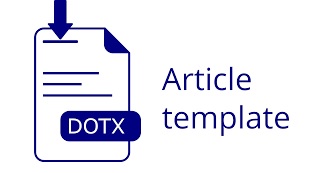The Impact Of Military Assistance On International Political Dynamics
DOI:
https://doi.org/10.30656/sawala.v12i1.8136Keywords:
alliance politics, bilateral relations, diplomatic dynamics, military assistance, power transitionAbstract
Abstract
This research explores the intricate interplay between military assistance and international political dynamics, focusing on its implications for regional power structures. Grounded in Power Transition Theory, the study aims to unravel the complex web of relationships influenced by military aid, examining its intended and unintended consequences. Leveraging qualitative research methods through the analysis of secondary data, three key dimensions are investigated: Military Assistance and Power Transition Theory, Unveiling Diplomatic Dynamics: Military Assistance, Bilateral Relations, and Alliance Politics, and Unintended Consequences: Military Assistance, Security Dynamics, and the Specter of Arms Races. The findings highlight the multifaceted impact of military assistance on regional power dynamics, shedding light on its role in shaping diplomatic relations, influencing alliance politics, and potentially triggering unintended security consequences such as the specter of arms races. This research contributes to a deeper understanding of how military aid shapes the global geopolitical landscape. In conclusion, it emphasizes the need for nuanced policy considerations to mitigate unintended outcomes while harnessing the potential positive impacts of military assistance.
Keywords: alliance politics, bilateral relations, diplomatic dynamics, military assistance, power transition
References
Al Sarhan, A. S. (2017). United States foreign policy and the Middle East. Open Journal of Political Science, 7(04), 454.
Baxter, K., & Akbarzadeh, S. (2012). US foreign policy in the Middle East: The roots of anti-Americanism. Routledge.
Booth, K. (1991). National security and international relations. Oxford University Press.
Brennan Jr., R., Ries, C. P., Hanauer, L., Connable, B., Kelly, T. K., McNerney, M. J., Young, S., Campbell, J. H., & McMahon, K. S. (2013). Smooth Transitions? Lessons Learned from Transferring U.S. Military Responsibilities to Civilian Authorities in Iraq. RAND Corporation. https://www.rand.org/pubs/research_briefs/RB9749.html
Chen, L. S., & Evers, M. M. (2023). “Wars without Gun Smokeâ€: Global Supply Chains, Power Transitions, and Economic Statecraft. International Security, 48(2), 164–204. https://doi.org/10.1162/isec_a_00473
Cole, P. M. (1992). N3327.
Collier, P., & Hoeffler, A. (2007). Unintended consequences: does aid promote arms races? Oxford Bulletin of Economics and Statistics, 69(1), 1–27.
Creswell, J. W. (2013). Qualitative inquiry and research design: Choosing among five approaches (3rd ed.). Sage.
Drab, L. (2018). Defence diplomacy – an important tool for the implementation of foreign policy and security of the state. Security and Defence Quarterly, 20(3), 57–71. https://doi.org/10.5604/01.3001.0012.5152
Ebitz, A. (2019, February 12). The use of military diplomacy in great power competition: Lessons learned from the Marshall Plan. BROOKINGS. https://www.brookings.edu/articles/the-use-of-military-diplomacy-in-great-power-competition/
Gibbons, F. (2006). Military Support to Stabilization, Security, Transition, and Reconstruction Operations Joint Operating Concept.
Grover, J. A., & Office, U. S. G. A. (2019). Security Assistance US Agencies Should Improve Oversight of Human Rights Training for Foreign Security Forces.
History State. (2020, February 18). Lend-Lease and Military Aid to the Allies in the Early Years of World War II. https://history.state.gov/milestones
Jervis, R. (1993). Arms Control, Stability, and Causes of War. Political Science Quarterly, 108(2), 239–253. https://doi.org/10.2307/2152010
Karlin, M. (2017, December). Why military assistance programs disappoint. BROOKINGS. https://www.brookings.edu/articles/why-military-assistance-programs-disappoint/
Kim, W., & Morrow, J. D. (1992). When Do Power Shifts Lead to War? American Journal of Political Science, 36(4), 896–922. https://doi.org/10.2307/2111353
Koch, C. J. (2021). Testing the Power Transition Theory with Relative Military Power. Journal of Strategic Security, 14(3), 86–111. https://doi.org/10.5038/1944-0472.14.3.1884
Liff, A. P., & Ikenberry, G. J. (2014). Racing toward Tragedy?: China’s Rise, Military Competition in the Asia Pacific, and the Security Dilemma. International Security, 39(2), 52–91. https://doi.org/10.1162/ISEC_a_00176
Magness, M. A. J. S. P. (n.d.). THE RELATIONSHIP BETWEEN ARMS DYNAMICS & THE SECURITY DILEMMA–AN ANALYSIS.
Meierding, E., & Sigman, R. (2021). Understanding the Mechanisms of International Influence in an Era of Great Power Competition. Journal of Global Security Studies, 0(0), 1–18. https://doi.org/10.1093/jogss/ogab011
Organski, A. F. K., & Kugler, J. (1980). The war ledger. University of Chicago Press.
Ou-Yang, D. (2021, January 16). D.C. National Guard provides assistance for peaceful transition of power. US ARMY. https://www.army.mil/article/242472/d_c_national_guard_provides_assistance_for_peaceful_transition_of_power
Pajak, R. F. (2022). The Effectiveness of Soviet Arms Aid Diplomacy in the Third World. In The Soviet Union in the Third World (pp. 384–408). Routledge.
Reese, W. A., & C, I. C. O. F. T. H. E. A. F. W. D. (1993). The Principle of the Objective and Promoting National Interests: Desert Shield/Storm--A Case Study. Industrial College of the Armed Forces, National Defense University.
Rhodes, C. (2022). Case Studies: Cuban Revolution 1956–59. https://permanent.fdlp.gov/gpo107949/ARIS_Cuba-BOOK-small.pdf.
Robert Grass, M. (2015). MASTER OF MILITARY STUDIES TITLE: POWER TRANSITION AND UNITED STATES-CIHNA RELATIONS.
Rosen, M. A., DiazGranados, D., Dietz, A. S., Benishek, L. E., Thompson, D., Pronovost, P. J., Hopkins, J., Weaver, S. J., & Michael Rosen, note A. (2018). Teamwork in Healthcare: Key Discoveries Enabling Safer, High-Quality Care HHS Public Access. Am Psychol, 73(4), 433–450. https://doi.org/10.1037/amp0000298
Sachar, B. S. (2003). Cooperation in military training as a tool of peacetime military diplomacy. Strategic Analysis, 27(3), 404–421.
Sarjito, I. A., Djati, S. P., & Th, M. (2023). Manajemen Pertahanan. Indonesia Emas Group.
Sarjito, I. A., Duarte, E. P., & Sos, S. (2023). Geopolitik dan Geostrategi Pertahanan: Tantangan Keamanan Global. Indonesia Emas Group.
Shackelford, E., Kessler, E., & Sanderson, E. (2023). Less is More - US SSA to Africa 8-2023, Published. https://globalaffairs.org/research/report/less-more-new-strategy-us-security-assistance-africa
Steinback, A., & Childs, S. (2023). The Deficiency of Disparity The Limits of Systemic Theory and the Need for Strategic Studies in Power Transition Theory. Journal of Advanced Military Studies, 14(1), 201–241. https://doi.org/10.21140/mcuj.20231401009
USDOS. (2001). 06. Regional Stability. US Department of State. https://2009-2017.state.gov/s/d/rm/rls/perfrpt/2001/html/9825.htm
Walt, S. M. (1990). The origins of alliance. Cornell University Press.
WEAVER, M. E. (2014). An Example from the Cuban Missile Crisis. Diplomatic History, 38(1), 137–181. https://www.jstor.org/stable/26376538
Weaver, V. (2018). Afro-Pessimism and Identity Politics. 16(2), 442–457.
Wikipedia contributors. (2024, January 16). Mutual Defense Assistance Act. In Wikipedia, The Free Encyclopedia. https://en.wikipedia.org/w/index.php?title=Mutual_Defense_Assistance_Act&oldid=1196194704
Williams, V. (2023, October 31). foreign aid. Encyclopedia Britannica. https://www.britannica.com/money/topic/foreign-aid
Wivel, A. (2019, January 7). security dilemma. Encyclopedia Britannica. https://www.britannica.com/topic/security-dilemma









